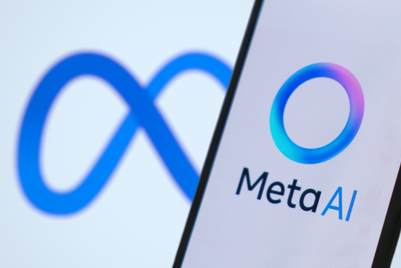.jpg&h=570&w=855&q=100&v=20250320&c=1)
Less than two weeks before Donald Trump is reinstated as US president, Meta announced it is scrapping its fact-checking programme and limiting discussions around contentious topics such as immigration and gender identity.
These changes will affect Facebook, Instagram and Threads – three of the world's largest social media platforms with a combined user base exceeding 3 billion. In a video statement,, Meta CEO Mark Zuckerberg said the fact-checkers "have just been too politically biased, and have destroyed more trust than they've created, especially in the US."
He said: "We've reached a point where it's just too many mistakes and too much censorship. It's time to get back to our roots around free expression." He added that the social network would focus on "reducing mistakes, simplifying its policies, and restoring free expression on its platforms."
Zuckerberg also said Meta will cease proactive monitoring for hate speech and other rule violations, instead relying on user reports to flag such content. The company will focus its automated systems on removing "high-severity violations" such as terrorism, child exploitation, scams and drug-related content.
This is Meta's most significant content moderation policy overhaul in recent years. Instead of the formal fact-checking programme, Zuckerberg will implement the "Community Notes" system similar to that championed by Trump ally Elon Musk at X, in which unpaid users, not third-party experts, police content.
Last week, Nick Clegg, former UK deputy prime minister and Meta's head of global affairs, abruptly left the company. Meta elevated Republican policy executive Joel Kaplan to Clegg's position and also appointed Dana White, CEO of Ultimate Fighting Championship and a close friend of Trump, to its board. These are clear signals that the social media giant is bending backwards to mend fences and appease the incoming administration. The shift comes exactly four years after Zuckerberg banned Trump from his platforms following the 6 January 2021 attack on the US Capitol.
President-elect Trump welcomed the changes, saying: "They have come a long way – Meta. The man (Zuckerberg) was very impressive." When asked if he believed Zuckerberg was responding to his threats, which included a pledge to imprison the CEO, Trump replied, "probably."
Zuckerberg also said the teams responsible for developing and reviewing content policies will be relocated from California to Texas and other locations in the US.
So what are Community Notes and is it effective?
Elon Musk hailed X's Community Notes as "awesome." He also praised the Meta boss for aping the system. But how effective is this crowdsourced approach to combating misinformation?
Formerly known as Birdwatch, Community Notes is a network of volunteer contributors that identify and flag potentially misleading posts. When enough contributors agree on the accuracy of a note, it appears in a breakout box beneath the flagged post. These notes provide corrections and often link it to external sources to support the fact-check.
The system gained prominence in 2023. It relies solely on the collective wisdom of the platform's users to identify and debunk false or misleading information. The model raises serious concers: is it effective? Is consensus equal truth? Could biases creep in? Will users even heed the notes Zuckerberg's embrace X's system highlights the trend, but questions linger.
Meta's chequered history with fact-checking
Meta's history of battling misinformation is fraught with failures. Its fact-checking programme, launched in 2016 amid election interference concerns, and which relied on organisations like the Associated Press and Snopes, proved inadequate. That same year, Cambridge Analytica exploited Facebook data to support Trump's campaign.
An Amnesty International report accused Meta's algorithms and lax moderation of fuelling violence against Rohingya in Myanmar. Another 2022 analysis revealed Facebook could have prevented billions of views of 2020 election misinformation, including content promoting violence before the January 6 Capitol attack. (Facebook disputed the study's methodology.) The day after the riot, Zuckerberg banned Trump, citing excessive risk. Now, less than two weeks before Trump's return to the presidency, Meta is abandoning fact-checking altogether.


.jpg&h=334&w=500&q=100&v=20250320&c=1)
.jpg&h=334&w=500&q=100&v=20250320&c=1)
.jpg&h=334&w=500&q=100&v=20250320&c=1)




.png&h=334&w=500&q=100&v=20250320&c=1)

.png&h=334&w=500&q=100&v=20250320&c=1)
.jpg&h=268&w=401&q=100&v=20250320&c=1)
.jpg&h=268&w=401&q=100&v=20250320&c=1)
.jpg&h=268&w=401&q=100&v=20250320&c=1)



.png&h=268&w=401&q=100&v=20250320&c=1)
